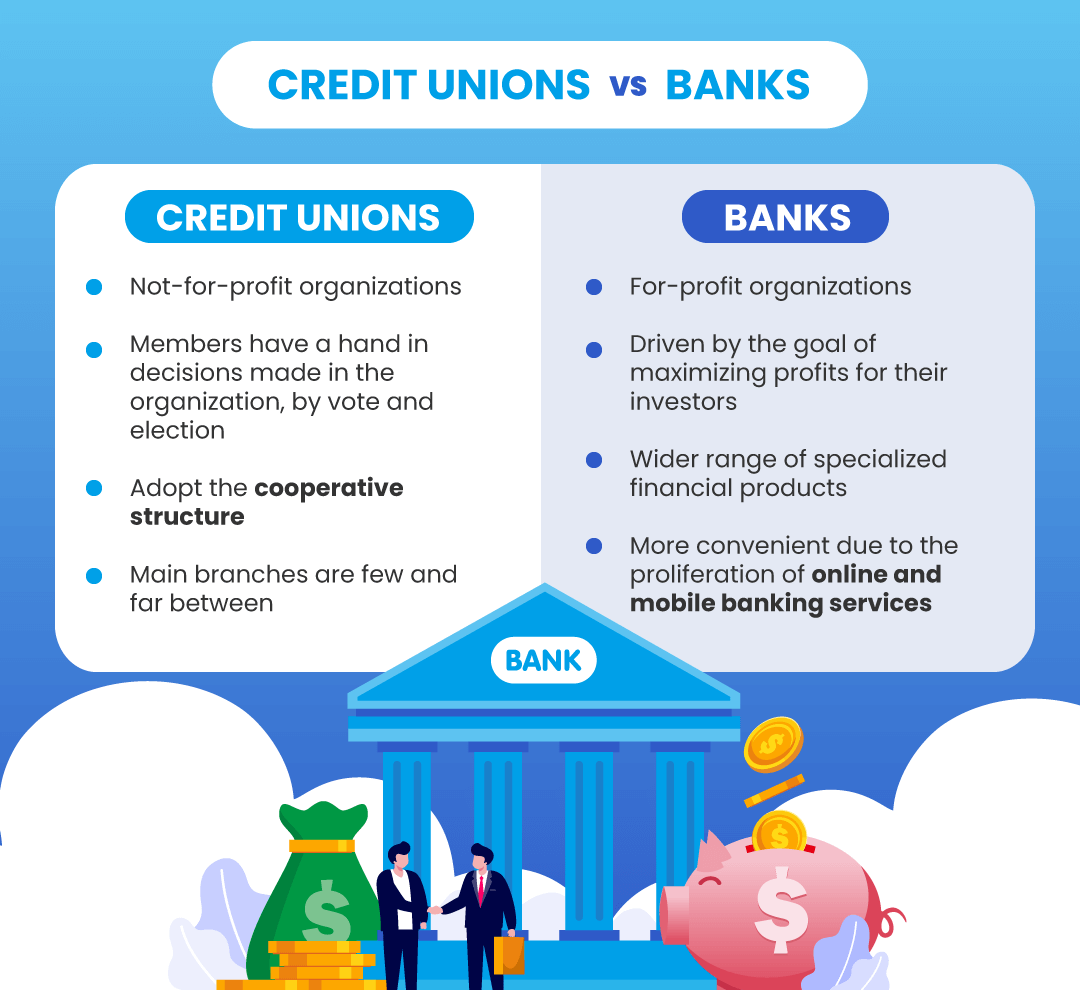Why Cooperative Credit Union Are the Best-Kept Financial Secret
In the realm of banks, lending institution usually stay a well-kept secret, silently providing a host of advantages that set them in addition to typical banks. Their member-focused strategy and dedication to neighborhood health develop a special monetary landscape that prioritizes tailored service and tailored remedies. The question stays: just what makes debt unions the favored selection for those in the know?
Background of Lending Institution

The concept of cooperative credit union spread out worldwide, with the very first debt union in The United States and Canada being established in Canada in 1901 by Alphonse Desjardins. In the USA, the initial credit rating union was started in New Hampshire in 1909 by Edward Filene and Roy Bergengren. These very early lending institution led the way for the participating financial establishments we recognize today, which focus on the monetary health of their members over earnings.
Benefits of Signing Up With a Lending Institution
Originating as a reaction to the minimal accessibility to traditional banking solutions, credit unions use an array of engaging advantages to people looking for a more community-focused method to economic services. Unlike standard financial institutions, credit unions are member-owned and operated, allowing them to focus on the needs of their participants over maximizing revenues.

Furthermore, cooperative credit union are deeply rooted in the areas they serve, often supporting neighborhood efforts and charities. This community-driven approach cultivates a sense of belonging and shared success among members, differentiating credit scores unions as not simply banks but as pillars of neighborhood support.
Lending Institution Vs. Traditional Bank
In comparing cooperative credit union to standard financial institutions, a distinctive contrast emerges in their possession structure and functional emphasis. Cooperative credit union are not-for-profit monetary cooperatives had by their participants, who additionally generally have a say in the organization's decision-making processes via ballot civil liberties. This ownership framework usually results in much better rates of interest on savings accounts, lower funding rates, and fewer charges contrasted to standard banks, where profits are guided to investors. In addition, lending institution tend to concentrate on offering their participants and the area instead of making the most of earnings. This member-centric method typically translates into personalized client service, monetary education and learning programs, and a dedication to assisting members enhance their monetary well-being. On the other hand, typical financial institutions are for-profit entities had by investors, aiming to generate profits for their investors. While financial institutions might provide a broader series of services and have more extensive ATM and branch networks, they may not constantly prioritize the most effective rate of interests of specific consumers similarly credit unions do.

Community Impact of Lending Institution
Credit score unions play a vital duty in boosting the financial wellness of neighborhood areas. Unlike traditional banks, lending institution are not-for-profit companies that are had and operated by their members. This one-of-a-kind framework enables cooperative credit union to prioritize the demands of their participants and the areas they serve over making the most of revenues.
One considerable method debt unions effect neighborhood communities is by giving access to budget-friendly economic services. Cooperative credit union commonly provide reduced rate of interest on lendings, greater rate of interest on financial savings accounts, and lower charges contrasted to conventional banks. This financial support assists community members attain their financial objectives, whether it's getting a home, starting a local business, or conserving for the future.
Additionally, credit score unions are deeply rooted in the communities they offer. By spending in the wellness of their neighborhoods, credit score unions assist foster financial growth, security, and prosperity for all wyoming credit residents.
Tips for Maximizing Credit Rating Union Membership
Take benefit of all the services your debt union offers. Debt unions use a vast array of economic items such as cost savings accounts, finances, credit score cards, and monetary planning services.
Second of all, get associated with your cooperative credit union's neighborhood events and initiatives. Many lending institution actively sustain regional areas with various programs such as economic literacy workshops, charity occasions, and sponsorships. By participating in these activities, you not just add to the improvement of your area yet also develop solid connections with various other participants and team.
Credit unions often present brand-new products and services to satisfy their members' evolving demands. By staying upgraded, you can take benefit of special bargains, price cuts, and awards customized to debt union participants.
Final Thought
Finally, lending institution use a member-focused strategy, personalized customer service, affordable rates of interest, and lower costs compared to conventional financial institutions. By focusing on the economic well-being of their members and sustaining local areas, credit report unions stand apart as concealed treasures in the economic market. Joining a credit history union can provide access to affordable monetary solutions, promote financial education and learning, and contribute to positive community effect. Take into consideration joining a lending institution for personalized financial options and community-focused efforts.